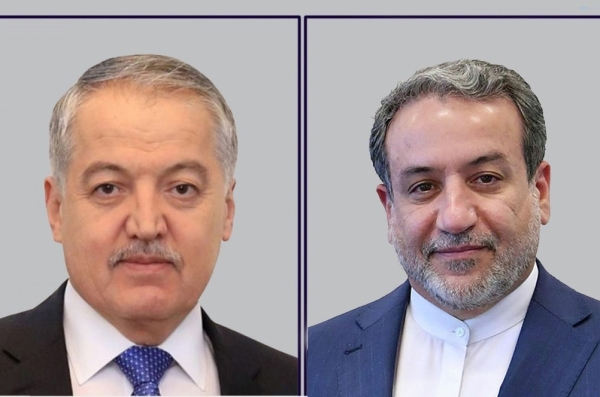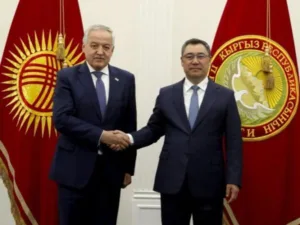
The Foreign Ministers of Tajikistan and Iran held a phone conversation on July 1, amid escalating tensions in the Middle East following Israeli and U.S. military strikes on Iranian targets.
The ministers discuss bilateral relations and current situation in Middle East
The call, initiated by Tehran, brought together Sirojiddin Muhriddin of Tajikistan and Abbas Araghchi of Iran to discuss a range of issues related to bilateral relations.
Furthermore, the parties exchanged views on the current situation in the Middle East, according to the Tajik MFA information department.
Minister Muhriddin reportedly reaffirmed Tajikistan’s principled position on the recent developments, although no further details were disclosed in the official statement.
In a parallel statement, the Iranian Embassy in Dushanbe said that Muhriddin had explicitly condemned the Israeli and U.S. attacks on Iran, calling them “illegal”. He also conveyed condolences to the people and government of Iran, stating that Tajikistan believes the “great and wise nation of Iran” will overcome this challenging period with dignity.
Iran thanks Tajikistan for support
IRNA reports that Muhriddin once again condemned the military assault as a violation of fundamental principles of the United Nations Charter and international law.
He reportedly also conveyed condolences and solidarity from the people and government of Tajikistan to the Iranian nation.
For his part, Iranian Foreign Minister Araghchi expressed gratitude for Tajikistan’s position, saying the solidarity shown by regional and Islamic countries reflects a shared understanding of the seriousness of Israel’s actions. He urged international bodies to uphold their responsibilities and hold Israel accountable for violating international law.
Background: 12 days of conflict
The phone call came in the aftermath of intensifying military conflict between Israel and Iran:
· On June 13, Israel launched airstrikes on targets linked to Iran’s nuclear program.
· Iran retaliated with missile strikes on Israeli territory.
· On June 22, the United States entered the conflict, with airstrikes on Fordow, Natanz, and Isfahan.
· U.S. President Donald Trump claimed those sites had been “destroyed.”
· In response, Iran attacked a U.S. air base in Qatar.
· Shortly thereafter, Trump announced that a ceasefire had been brokered between Israel and Iran.
Casualties reported
Iran’s Minister of Health stated that 606 Iranians were killed in the 12-day Israeli bombing campaign. Israel, in turn, reported 28 deaths from Iran’s retaliatory missile strikes.
Regional diplomacy is gaining momentum as countries like Tajikistan navigate complex alliances and express concern over the escalating violence in the Middle East.




